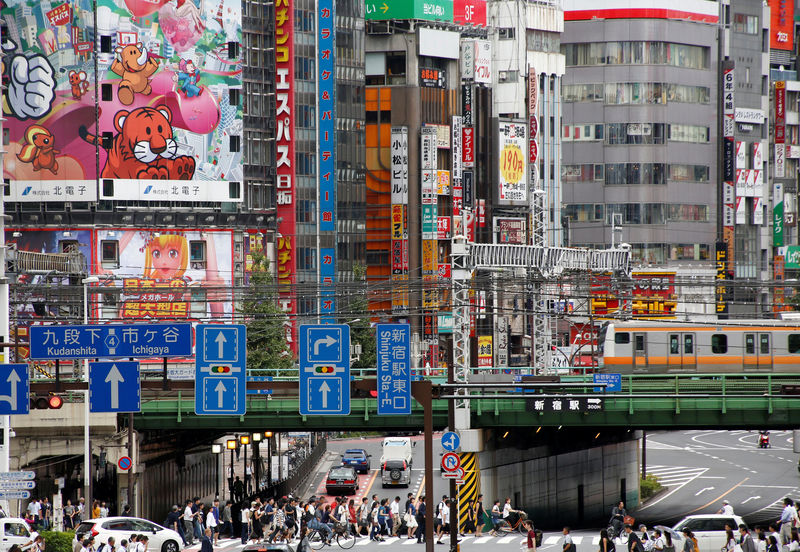By Stanley White
TOKYO (Reuters) - Japan's economy grew twice as fast as originally estimated in the third quarter thanks to big gains in capital expenditure, revised data showed on Friday, with expansion seen to continue thanks to buoyant exports.
The economy grew an annualized 2.5 percent in July-September, handily beating the preliminary reading of 1.4 percent annualized expansion.The capital expenditure component of gross domestic product was revised to a rise of 1.1 percent from the previous quarter, well over the forecast 0.4 percent growth, and soaring above the preliminary 0.2 percent reading.
Economists say the rate of growth reported on Friday is unsustainable, but they are still confident that the economy will continue to expand next year at a moderate pace.
"The economy is doing well, but annualized growth above 2 percent seems a little too quick," said Norio Miyagawa, senior economist at Mizuho Securities.
"I expect that exports and capital expenditure will lead growth next year, but the pace will moderate to around 1 percent."
Japan's economy has expanded for seven consecutive quarters, and many economists expect growth to continue as consumer spending gains strength and export growth is seen on track to continue.
"You can say Abenomics is doing well and producing results. Monetary policy is contributing to nominal growth. Revisions to past data show the government's fiscal spending had a bigger impact than previously thought. The structural reform that has made the most obvious impact is allowing more tourists to visit Japan," said Hiroshi Miyazaki, senior economist at Mitsubishi UFJ Morgan Stanley (NYSE:MS) Securities.
"The government can be satisfied with these numbers. Prices are not rising that much, which is a problem for the Bank of Japan, but at this point officials are starting to worry about how to exit from their easing."
Friday's updated third quarter data followed revised 2.9 percent annualized growth in April-June.
The initial second quarter data put annualized GDP growth at a stellar 4.0 percent, which was later revised down.
Friday's revised third quarter figures showed that Japan is in its longest uninterrupted period of growth since comparable data became available in 1994.
This is a boon to the government as it is expected to agree later on Friday a spending package to subsidize education and encourage more corporate investment.
Friday's figure translates into quarter-on-quarter growth of 0.6 percent, versus a preliminary reading of 0.3 percent growth and the median estimate for 0.4 percent growth.
Capital expenditure was revised up because wholesale companies and retailers are increasing investment to deal with increased inbound tourism, a Cabinet Office official told reporters.
Inventories contributed 0.4 percentage point in the third quarter, which was revised up from a preliminary 0.2 percentage point contribution, due to a build up of chemicals and plastics used in manufacturing, the official said.
Net exports contributed 0.5 percentage point in the third quarter, unchanged from the preliminary reading.
In one worrying sign, private consumption fell 0.5 percent in July-September, unchanged from the preliminary reading, as consumers spent less on cars, dining out, and mobile phone charges.
Weak consumption disappointed some economists who had expected a slight upward revision.

Real wages rose 0.2 percent in October marking their first rise since December 2016 in a sign a tight job market may finally be leading to higher salaries.